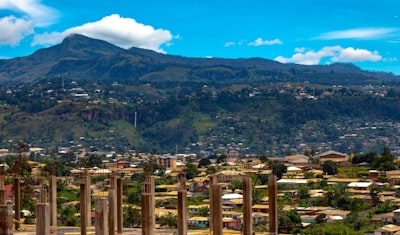Summary
On June 27, 2025, Rwanda and the Democratic Republic of the Congo (DRC) signed a US-mediated peace agreement in Washington, facilitated by US Secretary of State Marco Rubio and attended by former President Donald Trump. The deal intends to end ongoing conflict in eastern DRC by withdrawing Rwandan troops, neutralizing armed groups like the FDLR, and launching a regional economic integration framework. While the accord aims to end decades of bloodshed rooted in the Rwandan genocide, controversy erupted after Trump lauded the US’s acquisition of Congolese mineral rights as part of the deal, raising questions about motivations and beneficiaries.
Analysis
The persistent instability in eastern DRC is deeply entangled in the region’s history, especially Rwanda’s post-genocide tensions and the proliferation of armed groups capitalizing on weak state authority and the area’s vast mineral wealth. The M23 group—backed by Rwanda, according to the UN and several states—has reignited fighting, displacing hundreds of thousands and enabling ongoing resource exploitation.
The deal’s framing, prominently featuring Trump’s boast of securing mineral rights for the US, reveals the enduring global competition for Africa’s critical resources, including tantalum, cobalt, and lithium, which are vital to the electronics and renewable energy industries. By foregrounding US economic gains, the agreement risks being seen as more resource extraction than peacemaking or justice.
Human rights advocates, notably Nobel laureate Denis Mukwege, critique the deal’s opacity and omission of justice and reparations, warning it could legitimize aggressive extraction and set a worrying precedent: granting material rewards in exchange for fragile peace while neglecting accountability. This approach may delegitimize the peace process among locals and further entrench cycles of impunity and exploitation.
Moreover, the involvement of figures like Trump and Rubio—each with distinct political stakes—suggests the deal is as much about projecting US influence as resolving African security and humanitarian crises. The lack of detail on future Western investment and the absence of mechanisms for indigenous or regional oversight raise additional red flags about who truly benefits.
Discussion
This peace agreement exemplifies the intersection between conflict resolution and global resource politics. On one hand, halting violence is an urgent humanitarian priority: Eastern DRC’s civilians have suffered for decades from violence, forced displacement, and systematic sexual abuse. Any step toward peace is meaningful, potentially paving the way for better governance and regional cooperation.
On the other hand, the realpolitik at play is difficult to ignore. Deals struck in distant capitals—especially when they explicitly celebrate rich mineral deals for foreign powers—raise doubts about sovereignty and self-determination. The optics recall earlier epochs of extraction: external actors negotiating resource access over the heads (and often against the wishes) of affected populations. Is this a new chapter in Western-African relations, or just a rebranding of old patterns of exploitation?
Critical questions for the future include: Will the withdrawal of Rwandan troops and neutralization of militias bring sustainable peace, or simply allow new forms of violence and extraction? How can Congolese citizens hold their government and international actors accountable? What mechanisms exist to ensure the promised economic benefits contribute to genuine development rather than further entrench local elites or multinational interests?
The world should care because the outcome will serve as a precedent—either for peace built on justice, equity, and local agency, or for transactional agreements that trade sovereignty for security and profit. The DRC’s fate is not just an African story; it is a case study in who gets to define the terms of peace in a resource-hungry world.

Comments
No comments yet. Be the first to comment!